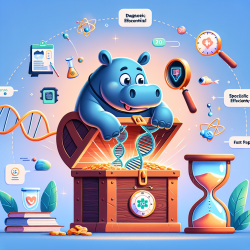Introduction
In the ever-evolving field of speech-language pathology, practitioners are constantly seeking innovative ways to enhance therapeutic outcomes for children. One promising frontier is the integration of genomics into public health research. The research article titled Genomics and Public Health Research: Can the State Allow Access to Genomic Databases? provides valuable insights into how genomic data can be leveraged to improve public health interventions, including those in speech-language pathology.
The Role of Genomics in Public Health
Genomics, the study of genes and their functions, offers a wealth of information that can be harnessed to better understand multifactorial disorders. Many speech and language disorders have genetic components, making genomics a vital tool in identifying potential risk factors and tailoring interventions accordingly. The integration of genomics into public health allows practitioners to assess the impact of genetic traits and their interactions with environmental factors, ultimately leading to more precise and effective therapeutic strategies.
Data-Driven Decisions for Better Outcomes
Incorporating genomic data into speech-language pathology practices can transform the way practitioners approach therapy. By understanding the genetic predispositions of children, therapists can develop personalized intervention plans that address specific needs. This data-driven approach not only enhances the efficacy of therapy but also ensures that resources are allocated efficiently, maximizing the potential for positive outcomes.
Encouraging Further Research
While the integration of genomics into public health holds great promise, it is essential for practitioners to stay informed about the latest research developments. By engaging with ongoing studies and contributing to the growing body of knowledge, speech-language pathologists can play a pivotal role in advancing the field. Encouraging collaboration between researchers, clinicians, and policymakers will be crucial in overcoming challenges related to data access and ethical considerations.
Conclusion
As we continue to explore the potential of genomics in public health, it is imperative that speech-language pathologists remain proactive in adopting data-driven practices. By leveraging genomic insights, practitioners can enhance therapeutic outcomes for children, paving the way for a healthier future. To read the original research paper, please follow this link: Genomics and Public Health Research: Can the State Allow Access to Genomic Databases?










